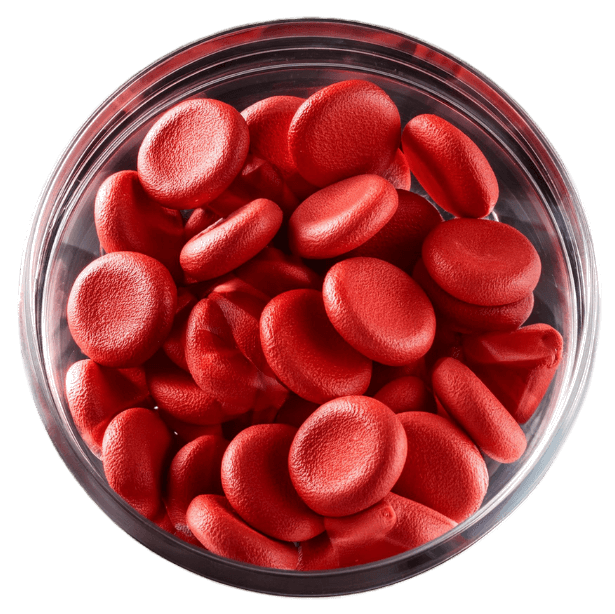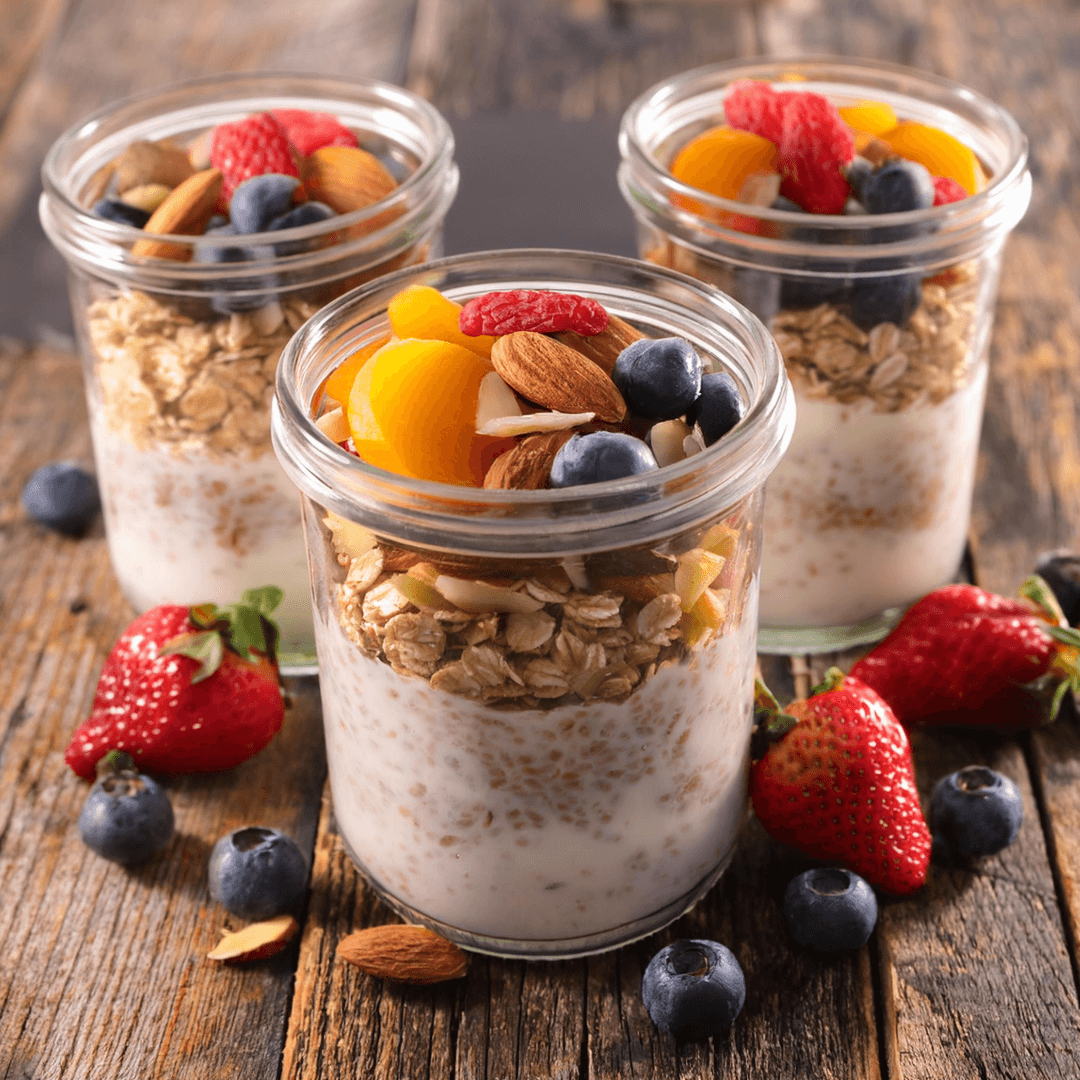Last updated: 27/10/2024, 15:25:41
Naturally Balanced: A Comprehensive Guide to Controlling Blood Sugar
Unlock the secrets to naturally balancing your blood sugar levels with our comprehensive guide. Discover effective strategies for enhancing your energy, managing your weight, and reducing the risk of chronic diseases—all while embracing a healthier lifestyle.

1. Understanding Blood Sugar Management
Metabolism Basics:
Learn how your body regulates blood sugar and the role of insulin in maintaining balance.
Consequences of Imbalance:
Discover the effects of high blood sugar levels, including fatigue, weight gain, and cognitive challenges.
2. Nutritional Strategies
Foods for Balance:
Identify low glycemic index foods and superfoods that support stable blood sugar levels.
Practical Recipes:
Gain access to delicious recipes designed to help you manage your blood sugar effectively.
3. Natural Supplements and Herbs
Benefits of Key Ingredients:
Explore the advantages of supplements like Eleuthero, Coleus, and African Mango.
Integration into Your Routine:
Learn how to incorporate these natural aids into your daily life for maximum effectiveness.
4. Healthy Lifestyle Habits
Exercise Recommendations:
Understand the impact of physical activity on blood sugar control and find suitable exercise options.
Sleep and Stress Management:
Discover techniques for improving sleep quality and reducing stress to support healthy blood sugar levels.
5. Action Plan for Success
30-Day Blood Sugar Plan:
Follow a step-by-step plan with weekly goals, meal suggestions, and exercise routines.
Tracking Progress:
Learn how to monitor your blood sugar levels, energy, and overall well-being throughout your journey.
6. Addressing Common Myths and Questions
Debunking Misconceptions:
Clarify common myths about blood sugar control and nutrition.
Expert Answers:
Get answers to frequently asked questions about supplements, diets, and lifestyle adaptations.
7. Resources and Additional Readings
Useful Apps and Websites:
Find essential apps and websites to help monitor blood glucose, track diet, and access reliable health information.
Recommended Books and Studies:
Explore top book recommendations and research studies to deepen your knowledge of blood sugar management.
8. Conclusion and Final Motivation
Encouragement for Lifestyle Change:
Embrace small, sustainable changes for lasting blood sugar balance and improved well-being.
Tips to Get Started:
Introduce gradual changes, set realistic goals, and seek support to maintain motivation.
Exclusive Discount Offer:
Access a special discount on Sugar Defender (Sugar Defender - Full Review 2024) to complement your journey toward better blood sugar management.
Chapter 1: Understanding Blood Sugar

1.1 What is Blood Sugar and How Does it Work?
Blood sugar refers to the amount of glucose present in our bloodstream. This glucose is the main source of energy for cells and is regulated primarily by the hormone insulin. When we consume carbohydrates, they are converted into glucose and released into the blood, raising sugar levels. Insulin helps cells absorb this glucose, balancing the blood sugar levels.
1.2 The Role of Insulin
Insulin is a hormone produced by the pancreas that plays a key role in regulating blood sugar levels. It acts as a "key" that allows glucose to enter the cells. Without insulin, glucose levels in the blood remain high, leading to long-term health complications.
1.3 The Impact of Blood Sugar Imbalance
Blood sugar imbalance is associated with various health issues, including:
- Type 2 diabetes and prediabetes
- Cardiovascular problems
- Constant fatigue and difficulty concentrating
- Weight gain and difficulty losing fat
1.4 Checklist: Symptoms of Blood Sugar Imbalance
Do you experience any of the following symptoms?
- Frequent thirst or hunger
- Fatigue or drowsiness after meals
- Difficulty losing weight
- Mood swings or irritability
Chapter 2: Foods and Recipes for Blood Sugar Control
2.1 Essential Foods for Controlling Blood Sugar
A balanced diet can have a powerful impact on blood sugar control. Foods rich in fiber, protein, and healthy fats help regulate glucose release into the bloodstream and maintain satiety. Here are some essential foods for those looking to keep their blood sugar levels stable:
- Green Vegetables: Spinach, kale, broccoli, and other leafy greens are rich in fiber and have a low glycemic index, helping control glucose levels.
- Low Glycemic Index Fruits: Fruits like apples, peaches, and strawberries provide essential nutrients without causing blood sugar spikes.
- Whole Grains: Quinoa, oats, barley, and other whole grains offer fiber and nutrients, releasing glucose gradually.
- Lean Proteins: Chicken breast, eggs, tofu, and fish are excellent protein sources that help maintain satiety and stabilize blood sugar.
- Legumes: Beans, chickpeas, and lentils have a low glycemic index and are rich in protein and fiber.
- Healthy Fats: Avocado, nuts, chia seeds, and olive oil help regulate glucose and promote cardiovascular health.
2.2 Superfoods That Help Control Blood Sugar
Some superfoods are known for their ability to support blood sugar control:
- Gymnema Sylvestre: This herb is known for reducing sugar cravings and balancing blood sugar levels.
- Maca: Rich in antioxidants, maca helps stabilize blood sugar and boost energy levels.
- Ginseng: Ginseng improves insulin sensitivity and can help lower glucose levels.
- Guarana: This natural stimulant enhances metabolism and helps fight fatigue.
2.3 Practical and Nutritious Recipes
Here are some easy and tasty recipes to incorporate these foods into your daily routine to help regulate blood sugar:
Recipe 1: Berry Smoothie with Chia

- 1 cup frozen berries (strawberries, blueberries, raspberries)
- 1 tablespoon chia seeds
- ½ cup unsweetened almond or coconut milk
- 1 teaspoon maca powder (optional)
Instructions: Blend all ingredients until smooth and creamy. Adjust consistency with more milk if needed. Enjoy in the morning for an energy boost!
Recipe 2: Green Salad with Avocado and Seeds

- 2 cups fresh spinach
- ½ avocado, sliced
- ¼ cup toasted pumpkin seeds
- 1 tablespoon olive oil
- 1 tablespoon lemon juice
- Salt and pepper to taste
Instructions: In a large bowl, mix spinach, avocado, and seeds. Drizzle with olive oil, lemon juice, salt, and pepper. Mix well and serve as a side or a light meal.
Recipe 3: Overnight Oats with Fruits and Nuts

- ½ cup rolled oats
- 1 cup unsweetened almond milk
- 1 tablespoon chia seeds
- ¼ cup chopped fruit (strawberries, apples, or peaches)
- 1 tablespoon chopped nuts
Instructions: Mix oats, almond milk, and chia seeds in a jar. Top with fruit and nuts. Refrigerate overnight. Stir and enjoy in the morning for a balanced, quick breakfast.
Chapter 3: Supplements and Lifestyle Habits for Blood Sugar Control
3.1 Natural Supplements that Help Regulate Blood Sugar
While food plays a crucial role, certain natural supplements can provide extra support for blood sugar control. Here are some of the most recommended supplements. An effective option that many have found helpful is Sugar Defender (Sugar Defender - Full Review 2024), which combines various natural ingredients to support healthy blood sugar levels:
- Gymnema Sylvestre: This supplement helps reduce sugar absorption in the intestines and may decrease sugar cravings. Known as the "sugar destroyer," it can be taken in capsules or as a tea. Research suggests it may even help regenerate beta cells in the pancreas, which produce insulin.
- Maca: Maca is an adaptogenic root that helps stabilize blood sugar levels while improving energy and mood. It can be consumed in powder or capsule form. Adaptogens like maca are known to help the body cope with stress, which can negatively affect glucose levels.
- Chromium: This mineral is essential for blood sugar regulation and can improve insulin sensitivity. Chromium is found in foods like broccoli and potatoes, but can also be taken as a supplement. Studies show it may help reduce fasting glucose levels.
- Ginseng: Popular in various cultures, ginseng has been studied for its ability to improve insulin sensitivity and lower blood sugar levels after meals. Additionally, it can boost energy and physical endurance.
- Cinnamon: Though more commonly used as a spice, cinnamon is also available in capsule form. It helps lower blood sugar and increase insulin sensitivity. Cinnamon contains bioactive compounds that can mimic insulin, helping cells absorb glucose.
- Eleuthero (Siberian Ginseng): This adaptogen is known for boosting energy and stress resilience. Studies suggest Eleuthero may help regulate blood sugar levels, especially in people with type 2 diabetes, by improving insulin sensitivity.
- Coleus Forskohlii: Derived from the root of the plant, this supplement is known for increasing the production of an enzyme called lipase, which can help burn fat. Additionally, Coleus may assist in regulating blood sugar levels, making it a valuable option for those looking to control glucose.
- African Mango: Extracted from the seeds of the African mango, this supplement is known for its weight management properties. Research indicates that African Mango may help reduce cholesterol and blood sugar levels, in addition to promoting weight loss. This can be beneficial for those struggling with insulin resistance.
3.2 Healthy Lifestyle Habits for Blood Sugar Control
Small lifestyle changes can make a big difference in regulating blood sugar. Here are some effective habits that can be integrated into your daily routine:
- Regular Exercise: Engaging in physical activity like walking, strength training, and cardiovascular exercises helps cells use glucose for energy, reducing blood sugar levels.
- Stress Management: High stress increases cortisol, which can lead to elevated blood sugar levels. Practices like meditation, yoga, and deep breathing help keep stress in check.
- Quality Sleep: Poor sleep interferes with the body's ability to regulate sugar and can increase insulin resistance. Aim for 7-8 hours of sleep each night to optimize your health.
- Adequate Hydration: Drinking water throughout the day helps the body flush out excess sugar through urine and improves digestion and metabolism.
- Reduced Intake of Refined Carbohydrates: Processed foods and refined sugars rapidly spike blood sugar. Opt for whole grains and include fiber in meals for slower absorption.
3.3 Daily Checklist for Blood Sugar Control
Here is a practical checklist to implement these habits into your daily life:
- Completed at least 30 minutes of physical exercise.
- Practiced meditation or used a stress-reduction technique.
- Slept between 7-8 hours.
- Maintained a balanced diet, avoiding refined carbohydrates.
- Drank at least 8 glasses of water.
Conclusion of Chapter 3
This chapter provides a powerful complement to dietary tips, showing that with supplementation and healthy habits, it's possible to keep blood sugar levels under control sustainably. In the next chapter, we’ll structure a 30-day plan for you to follow step by step!